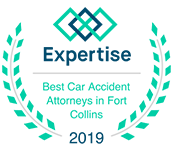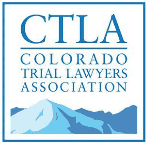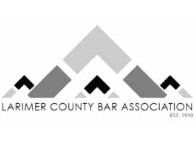Request a Free Consultation | No Upfront FeesSe Habla Español
970-225-2190 |
1-800-664-3151
What to Do If You’re In a Car Accident
The time immediately following a car crash can be hectic, frantic, and downright scary. It is not a situation that you have likely prepared for or, hopefully, been in before. While this is not a comprehensive list and should not take the place of common sense, it will hopefully provide you with some guidance on what to do if you’re in a car accident.
1. Make Sure Everyone Involved is OK and Safe
The first step to take after you’re involved in a car crash is to ensure that everyone is physically ok and safe. This will start with you! Take a moment to make sure that you are not hurt or bleeding. If you have anyone else in your vehicle, ensure that they are not hurt or bleeding as well. Ask them: “Are you OK? Are you hurt?” Look them over for any signs of obvious injury. Sometimes a person can feel perfectly fine but can be bleeding significantly.
You then want to ensure that you are safe. Make sure that your vehicle is in a safe position while you wait for the authorities. If you can, you should get out of your vehicle and see if you are about to move it. Before potentially moving any vehicles, check for any leaking fluid. If possible, take photographs of the cars in their original positions before moving them. If you’re able to, move your car to the side of the road to prevent an additional accident from occurring.
It is important to also make sure that the people in the other vehicle are physically ok, too. Walk over calmly and politely ask if everyone is ok. Be careful, as not everyone responds calmly and rationally when such a traumatic event occurs. Once you have determined that all parties involved in the crash are ok and the scene is safe, proceed to step two.
2. Call the Police
The law in Colorado is that all car crashes must be reported, no matter how insignificant they appear. Even if that was not the case, it is always a good idea to call the police. You can either call 911 or the local police non-emergency number. We recommend you call 911, as they can send an ambulance or EMTs out to your location quickly and efficiently if you require them.
A police officer will arrive at the scene and assess what happened. They will take the parties’ information, take statements from any witnesses, and eventually issue a report. They may also take photographs and any necessary measurements. The police will also issue any tickets to people who have broken the law or been negligent in causing the car crash. This will help you later in your case when you have to prove that the other party was at fault for the crash.
The police officer can also make sure that the scene is safe and can direct traffic if your vehicle is stuck in the road. The police will give you a copy of the police report that will have the other party’s insurance information on it. This can be helpful if the other party is particularly unpleasant or unhelpful with talking to you directly. If possible, do not leave the scene without getting a copy of the report from the officer. This makes it more likely the officer will issue a citation and it ensures the case is handled promptly.
3. Take Pictures
Once you have make sure everyone is safe and have called the police, it is a good idea to take pictures of your vehicle and injuries at the scene.
Sometimes police do not take pictures of the vehicles. If you take pictures yourself it can help you later on in proving liability or making sure that the other side pays to completely repair your vehicle. Pictures can be used to help prove the direction and speed people were travelling or what actions they were taking immediately before the crash.
In the current age of smartphones, most people have a high-quality camera in their pocket. We recommend that you take pictures of the outside of your car, even in places where there is no damage. If your airbags deployed or belongings inside of your car have moved around, be sure to document with photographs. Politely and respectfully take pictures of the outside of the other car as well. Look around the scene and see if there are any cameras that could have caught the crash on film – traffic cameras, security cameras from nearby business, ATMs, etc. Take a pictures of the locations of any potential cameras so your lawyer can try to get a copy of that video evidence.
If you are visibly injured at the scene, take pictures of your injuries as well. Pictures of your cuts, scrapes, and bruises can be helpful to your case. This is true at the scene of the accident, as well as throughout the entirety of your case. As your injuries heal or if you undergo any type of surgery, be sure to continue to take photographs.
4. Seek Medical Treatment
Paramedics will often respond to the scene of an accident, even if injuries are not reported. It is important that you let the EMTs examine you for injuries, even if you don’t feel injured. They have expertise and can look for signs of injury that you may not recognize or notice that you have. This is especially true with head injuries. If you are obviously hurt, take an ambulance to the nearest emergency room.
Even if you do not believe that you are injured, closely monitor how you are feeling over the next few hours. Often after an accident our bodies are injected with a rush of adrenaline that will momentarily mask the signs and symptoms of injuries. Once that wears off over the course of the next few hours, many people begin to feel pain from injuries suffered in the crash. Often people will go to bed feeling perfectly fine and wake up the next morning feeling stiff as a board. If this is the case for you, seek medical treatment immediately when you notice these symptoms. It is best to go to an emergency room or urgent care in order to be seen immediately. These symptoms can sometimes be a sign of serious injury, even if you did not feel them immediately.
There are certainly other things that you should do after a car accident, but hopefully this list will give you some guidance on what needs to be done immediately. Don’t forget to inform your own car insurance that you’ve been in a crash. Make sure you are getting continual and adequate medical care through all steps of your recovery process.
Often the days and weeks following a car crash are equally stressful and hectic. You will likely have many different insurance companies calling you and looking for information. Sometimes the insurance companies are looking to take advantage of any mistakes you might make to minimize the value of your claim. It is always important that you call a good law firm to help you navigate some of the forthcoming confusion and contentious steps in your case. A good law firm can help take the stress of these different companies and people constantly contacting you off your plate and help make sure that you do not commit any errors that could negatively affect your case down the road. If you have recently been injured in a car accident, call the Hoggatt Law Office today!

970-225-2190 | 1-800-664-3151
1403 W. 29th St.,
Loveland, Colorado 80538
Greeley:
3835 W. 10th Street, Unit 100,
Greeley, Colorado 80634|
970-460-2220
Longmont:
2204 18th Ave, Suite 123,
Longmont, Colorado 80501|
720-575-0509
Boulder:
4450 Arapahoe Avenue, Suite 100,
Boulder, Colorado 80303|
303-997-2018
Ft. Collins:
123 North College Ave., Suite 160,
Fort Collins, CO 80524|
970-225-2190
Cheyenne:
109 E. 17th St., Suite #6148,
Cheyenne, WY 82001|
307-227-4051 (By Appointment Only)















